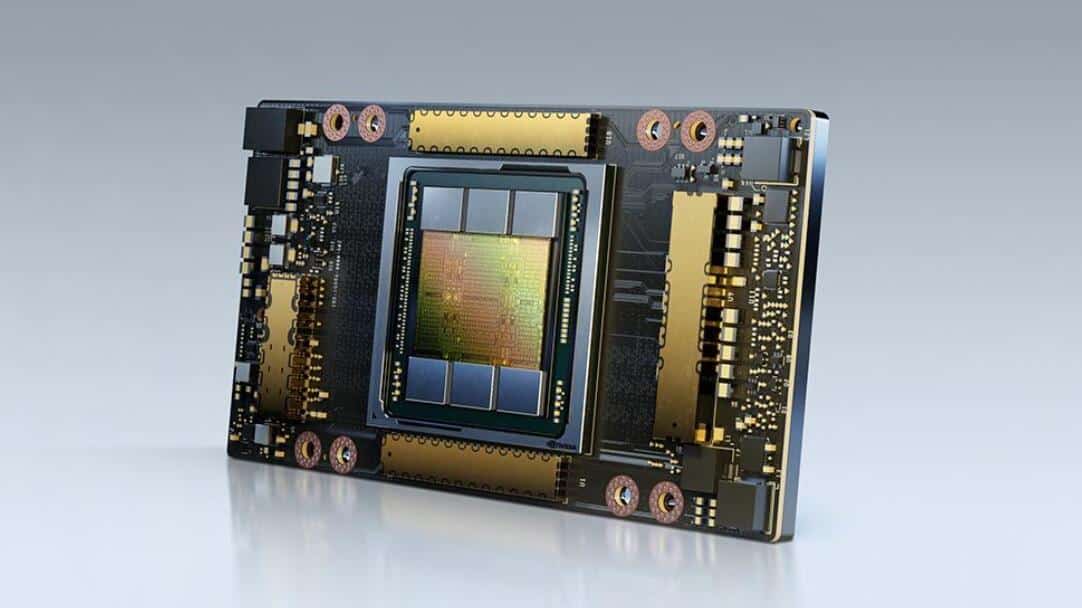
Nvidia is offering a new GPU chip in China to meet the needs of local customers as an alternative to another chip subject to US export restrictions.
The US chip giant said Monday it is offering the A800 chip in China, which complies with recent US export control regulations, according to a Reuters report today.
"The Nvidia A800 GPU, which went into production in Q3, is another alternative product to the Nvidia A100 GPU for customers in China. The A800 meets the US Government's clear test for reduced export control and cannot be programmed to exceed it," an Nvidia spokesperson said in a statement to Reuters.
At least two Chinese sites of major server makers offer the A800 chip in their products, one of which previously used the A100 chip in promotional materials, according to the report.
A Chinese distributor's website detailed the A800's specifications. A comparison of the chip's features with the A100 shows that the new chip has a chip-to-chip data transfer rate of 400 gigabits per second, down from the A100's 600 gigabits per second. The new rules limit the rate to 600 gigabytes per second and above.
The A800 appears to be a repackaged A100 GPU designed to avoid recent US Commerce Department trade restrictions, the report said, citing Wayne Lam, an analyst with CCS Insight.
China is an important market for Nvidia, and it makes good business sense to reconfigure the product to avoid trade restrictions, Lam said, adding that the A800's chip-to-chip communications capabilities represent a significant performance drop for data centers where thousands of chips are used together.
On August 31, Nvidia said in a statement that the US government notified it on August 26 of new licensing requirements for any future exports of its A100 and upcoming H100 integrated circuits to China, including Hong Kong, and Russia, effective immediately.
Nvidia's DGX or any other system using the A100 or H100 ICs and the A100X is covered by the new licensing requirements.
The license requirements also include any future Nvidia integrated circuits that achieve peak performance and chip-to-chip I/O performance equal to or above thresholds roughly equivalent to the A100, as well as any systems that include these circuits.
The new licensing requirements could impact Nvidia's ability to complete the development of the H100 or support existing A100 customers in a timely manner and could require the company to relocate certain operations out of China, according to the statement.
On September 1, Nvidia said in an updated filing that it received permission from the US to export key chips.
The US government has authorized exports, reexports, and in-country transfers needed to continue Nvidia's development of H100 integrated circuits, the company said in a statement in an 8-K filing with the US Securities and Exchange Commission on September 1.
The authorization also allows the company to perform exports needed to provide support for US customers of A100 through March 1, 2023, according to the filing.